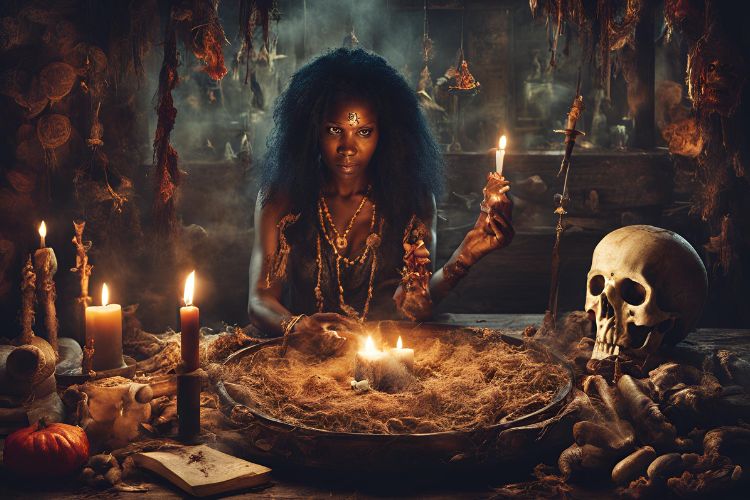Voodoo spell casters have long been a topic of fascination, mystery, and often dread in popular culture and society. From Hollywood movies depicting them as black magic-wielding villains to sensationalized news stories about their supposed powers, the image of voodoo spell casters has been colored by myth and misinformation. In this article, we will delve into the truth behind voodoo spell casters, separating fact from fiction to better understand this often misunderstood practice.
The Origins of Voodoo
To begin with, it is important to distinguish between the Hollywood portrayal of voodoo spell casters and the actual practice of voodoo, which has deep roots in African and Haitian culture. Voodoo, also spelled as Vodou or Vodun, is a spiritual belief system that originated in West Africa and was brought to the New World during the transatlantic slave trade. It is a complex and multifaceted religion that incorporates elements of African spiritual traditions, Catholicism, and indigenous beliefs.
Voodoo practitioners, known as houngans and mambos, serve as spiritual leaders within their communities, guiding followers in rituals, ceremonies, and healing practices. Contrary to popular belief, voodoo is not primarily concerned with curses, hexes, or dark magic. Instead, it is a holistic belief system that emphasizes spiritual connection, healing, and the balance between the physical and spiritual realms.
The Role of Spell Casters in Voodoo
Within the context of voodoo, spell casters play a central role in performing rituals and ceremonies aimed at invoking the aid of spirits, ancestors, and other divine forces. These rituals may involve the use of talismans, candles, herbs, and other materials to channel energy and intention towards a specific goal, such as healing, protection, or prosperity.
Voodoo spell casters are trained practitioners who undergo rigorous spiritual training and initiation rites to develop their skills and expertise. They are seen as mediators between the human and spirit worlds, using their knowledge and connection to guide and assist others in their spiritual journey.
Dispelling Myths About Voodoo Spell Casters
Despite the rich and complex history of voodoo, misconceptions and myths about spell casters persist in popular culture. One of the most enduring myths is the idea that voodoo spell casters have the power to control other people’s thoughts and actions through the use of curses and hexes. In reality, voodoo spell casters do not possess supernatural powers of mind control or manipulation. Their practices are based on principles of energy work, intention setting, and spiritual connection rather than coercion or manipulation.
Another common misconception is that voodoo spell casters are inherently malevolent or evil. This stereotype stems from the demonization of African spiritual traditions by colonial powers and continues to shape perceptions of voodoo in mainstream media. In truth, voodoo spell casters are dedicated to serving their communities and helping others navigate life’s challenges through spiritual guidance and support.
The Ethics of Voodoo Spell Casting
Like practitioners of any spiritual tradition, voodoo spell casters adhere to a code of ethics and principles that guide their work and interactions with clients. Central to voodoo ethics is the principle of reciprocity, which emphasizes the importance of balance and fairness in all exchanges. Voodoo spell casters do not engage in harmful or unethical practices, such as manipulating others for personal gain or causing harm to innocent individuals.
Furthermore, voodoo spell casters approach their work with a deep sense of respect for the spirits, ancestors, and divine forces they invoke in their rituals. They understand the power and responsibility that comes with their practice and strive to uphold the highest standards of integrity, compassion, and authenticity in their work.
The Healing Power of Voodoo Spell Casting
Far from being a tool of manipulation or control, voodoo spell casting can be a powerful form of spiritual healing and empowerment. Voodoo spell casters work collaboratively with their clients to identify and address specific goals or challenges, such as healing from past traumas, finding clarity and direction, or overcoming obstacles in their lives.
Through the use of rituals, ceremonies, and sacred objects, voodoo spell casters help clients connect with their inner wisdom, intuition, and spiritual guides to facilitate healing and transformation. The focus is on promoting personal growth, self-discovery, and spiritual evolution rather than seeking quick fixes or superficial solutions.
Conclusion
In conclusion, voodoo spell casters are skilled practitioners who play a vital role in facilitating spiritual healing, empowerment, and guidance for those seeking support in their spiritual journey. By dispelling myths and misconceptions about voodoo spell casting, we can better appreciate the rich cultural heritage and spiritual wisdom that underpins this ancient practice.
Voodoo spell casters are not the sinister figures portrayed in popular culture but dedicated healers and guides who work with integrity, compassion, and respect for the sacred traditions of their ancestors. By separating fact from fiction and embracing a more nuanced understanding of voodoo, we can honor the legacy of this ancient practice and its capacity to inspire, uplift, and transform lives.

